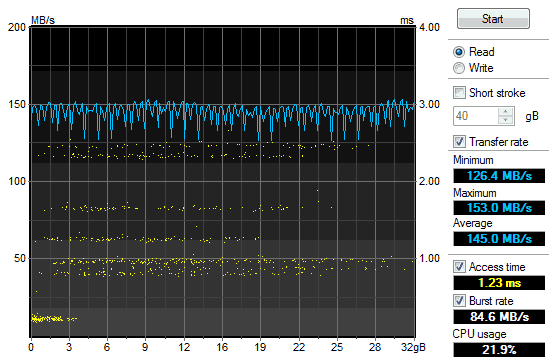Rocketu Quad Usb 3.0 For Mac

Apple was one of the first -- if not the first -- major computer manufacturers to provide then-fledgling USB support at the expense of legacy ports on its iMac line some 15 ago. Since then, the Mac maker hasn't always been the fastest at adding new USB protocols to machines, generally lagging six months or more behind, depending on the product line.
The Mac Pro is languishing these days, awaiting a revamp -- but still has no USB 3.0 ports, despite an incremental update last summer boosting the speed of the computer somewhat. Has had strong support for the Macintosh and OS X despite only one current line of hardware having PCI-E slots.
Buy RocketU Quad USB 3.0 for Mac from HighPoint Technologies, Inc. With extended same day shipping times. View datasheets, stock, pricing and more for RocketU Quad USB 3.0 for Mac.
The latest offering from the company is the card for the Mac Pro. Spec-wise, the RocketU 1144CM is no slouch. Instead of one USB controller for a host of ports, each USB 3.0 port has its own controller chip. The card has wide OS support, ranging from OS X 10.5 Leopard all the way through OS X 10.8 Mountain Lion. The card supports various RAID configurations including JBOD and RAID levels 0 and 1. We have two Mac Pro towers in the testing lab. One is a 2006 Mac Pro upgraded to eight-cores with 6GB of RAM running OS X 10.7.
The second is a 2010 Mac Pro with 12GB of RAM running OS X 10.8. Drive speed tests were performed with a set of four Newer Technology Voyager S3 USB 3.0 drive docks, and both a set of four SandForce SATA 3 SSDs as well as four SATA 3 7200 RPM 2TB Hard drives with 32MB of cache. There's no denying it -- this card is fast. With the four drives in RAID-1 configuration, the 2010 Mac Pro moved a 6GB single file at 603MB per second off the SSDs, and 591MB per second off the hard drive array. A 6GB folder filled with 200 items was copied at 562MB per second, with the hard drives at 522MB per second. Due to the single-lane PCI-E slots on the original Mac Pro, speeds were limited to 205MB per second for both transfers. The nature of the card make it difficult to compare it to other competitive offerings.
To check the benefit of each port having its own controller, we installed a pair of CalDigit two-port USB 3.0 adapters, each with one controller governing a pair of ports. Speeds were notably slower, for an equivalent capital investment in the pair of cards -- the 6GB file was moved at 520MB per second off the SSDs and 468MB per second off of the hard drives, at 86 percent and 79 percent of the speed of the HighPoint single card respectively. Similar percentages were realized with the folders of files. Some caveats exist for the HighPoint card. We couldn't get devices other than drives to work.
This means that the card isn't usable as simply more USB ports, but in our opinion, USB 3.0 for a printer or other such device is total overkill. More problematic is the lack of hub compatibility. We tried three different manufacturers of hubs, and none functioned. It is important to note that the neither the manual nor the manufacturer claim that hubs will function with the card, and even if it did, the primary speed advantage of the card would be greatly diluted in such a configuration. HighPoint doesn't make compromises with its line of PCI-E cards for the Macintosh. The HighPoint Rocket-U 1144CM is no exception. It does what the literature for the card says it will do, and it does it well.
As with its line of PCI-E SATA cards, there is a cost for the speed premium. The four-port Rocket-U 1144CM retails for $150, which isn't notably faster than a pair of two-port solutions. Is western digital passport software good for mac free.
Simple USB 3.0 I/O is best gotten elsewhere, but if blistering speed is needed -- maxing out the capability of USB 3.0 with have no intention of use for devices like printers or keyboards -- the HighPoint offering is the way to go. Cirrus creates Lightning-headphone dev kit Apple supplier Cirrus Logic has introduced a MFi-compliant new development kit for companies interested in using Cirrus' chips to create Lightning-based headphones, which -- regardless of whether rumors about Apple dropping the analog headphone jack in its iPhone this fall -- can offer advantages to music-loving iOS device users.

The kit mentions some of the advantages of an all-digital headset or headphone connector, including higher-bitrate support, a more customizable experience, and support for power and data transfer into headphone hardware. Several companies already make Lightning headphones, and Apple has supported the concept since June 2014.
- вторник 23 октября
- 2